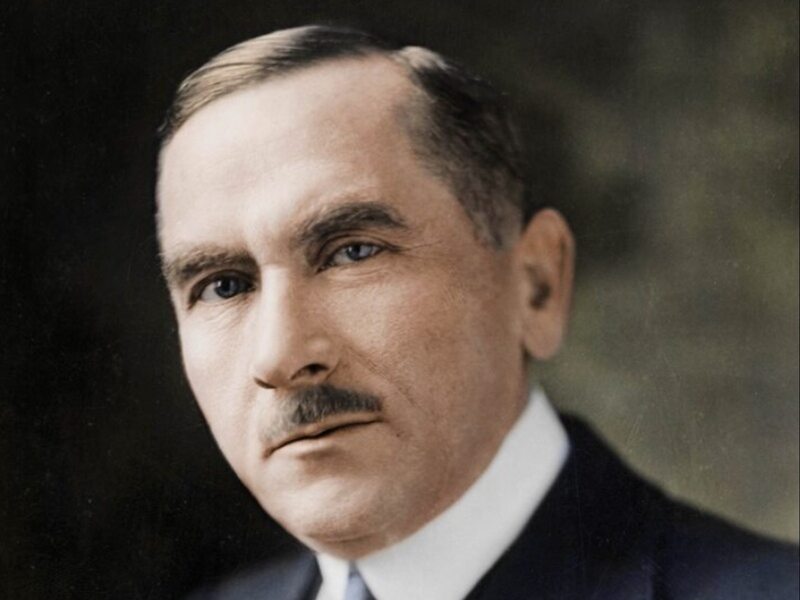
The attacks on Dmowski and his political camp, even after his death, were directly proportional to the importance he had shown both in the last quarter of a century before independence and in the two decades of the revived Polish state. Like his greatest political opponent Józef Piłsudski, Dmowski did not see the German invasion of Poland that started World War II: the head of state died in May 1935, and the leader of the national camp left in early January 1939.
Many have a problem with Dmovsky. A frontal attack turns the essential polemic against his books, theses, and actual politics. On the other hand, there are also uncritical followers who defend every step or article from, for example, 90 years ago, which is also difficult to evaluate in substance. The latter should be dedicated to an anecdote about how the artist Wojciech Styka painted Jesus Christ. Because he was a deeply religious man, he drew on his knees. During this work, Christ appeared to him and said: “Look! Don't draw on my knees! You draw me well!”
It is a fact that in the period after the Second World War, the supporters of the political camp created by Roman Dmowski – the nationalists – persecuted the communists of all the parties of the Second Polish Republic the most. This, of course, was influenced by criticism of the power of Jewish capital before and especially during the revival of Polish statehood and the presence of representatives of this minority in Polish public life. This has already become history.
Characteristically, the nationalists had influence over the government of the Second Polish Republic for only a few years, before the coup of May 1926, and Roman Dmowski himself was foreign minister only once. While Piłsudski's camp won the struggle for power in Poland with the Nationalist camp, the National Democrats (the often pejorative abbreviation of National Democracy) won the fight against their opponents for the “rule of the souls” of the Poles. It is characteristic that in the 1930s, and especially in the second half, the political and ideological program of the national camp was mainly adopted by the supporters of Pilsudski.
If we wanted to write in one sentence(!) what remains of Roman Dmovsky's legacy, it would be necessary to say that cold pragmatism in assessing the intentions and actions of our near and more distant neighbors is far from romanticism. and the recognition of the Polish state and nation as the main azimuths of political action, as well as the obvious assumption that our national interests and those of other countries may conflict and lead to conflicts despite our good will and desire. This political mindset will probably remain.
(translate tags)ryszard Czarnecki
